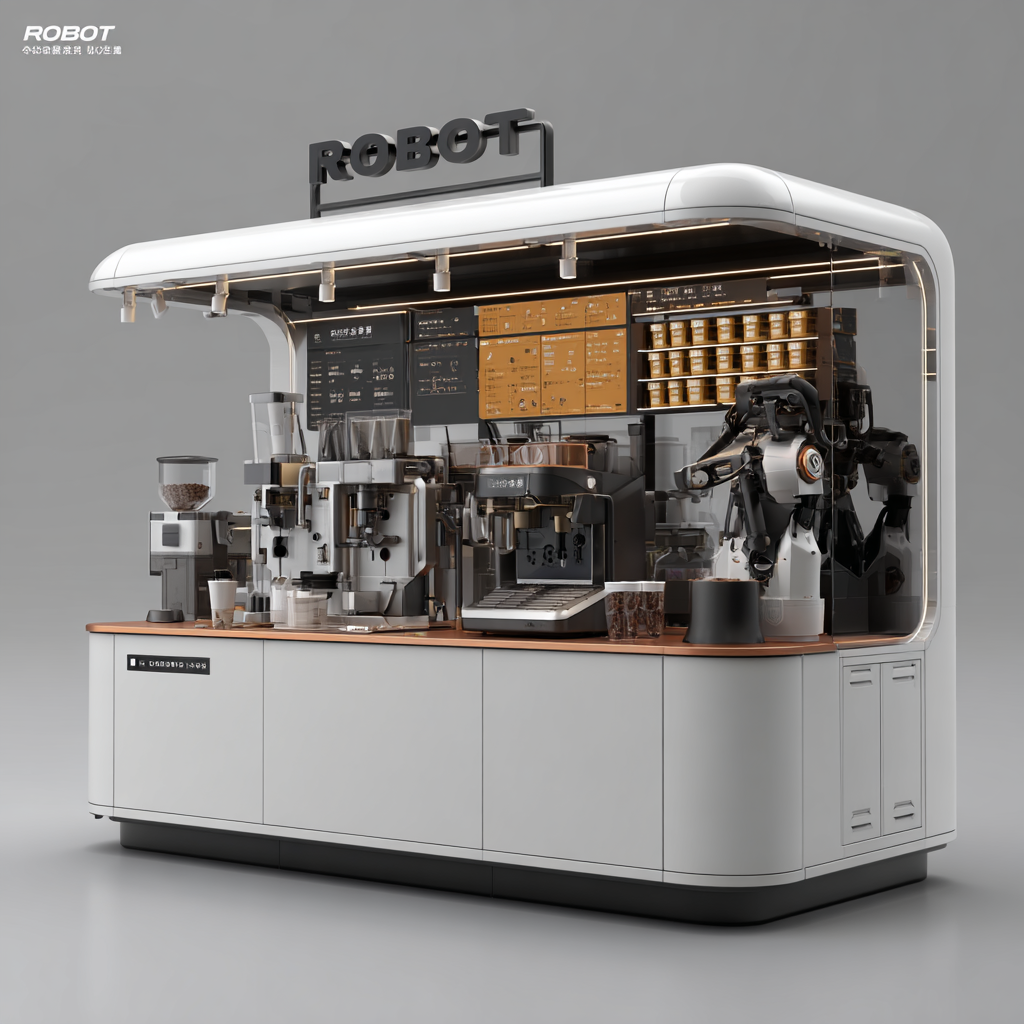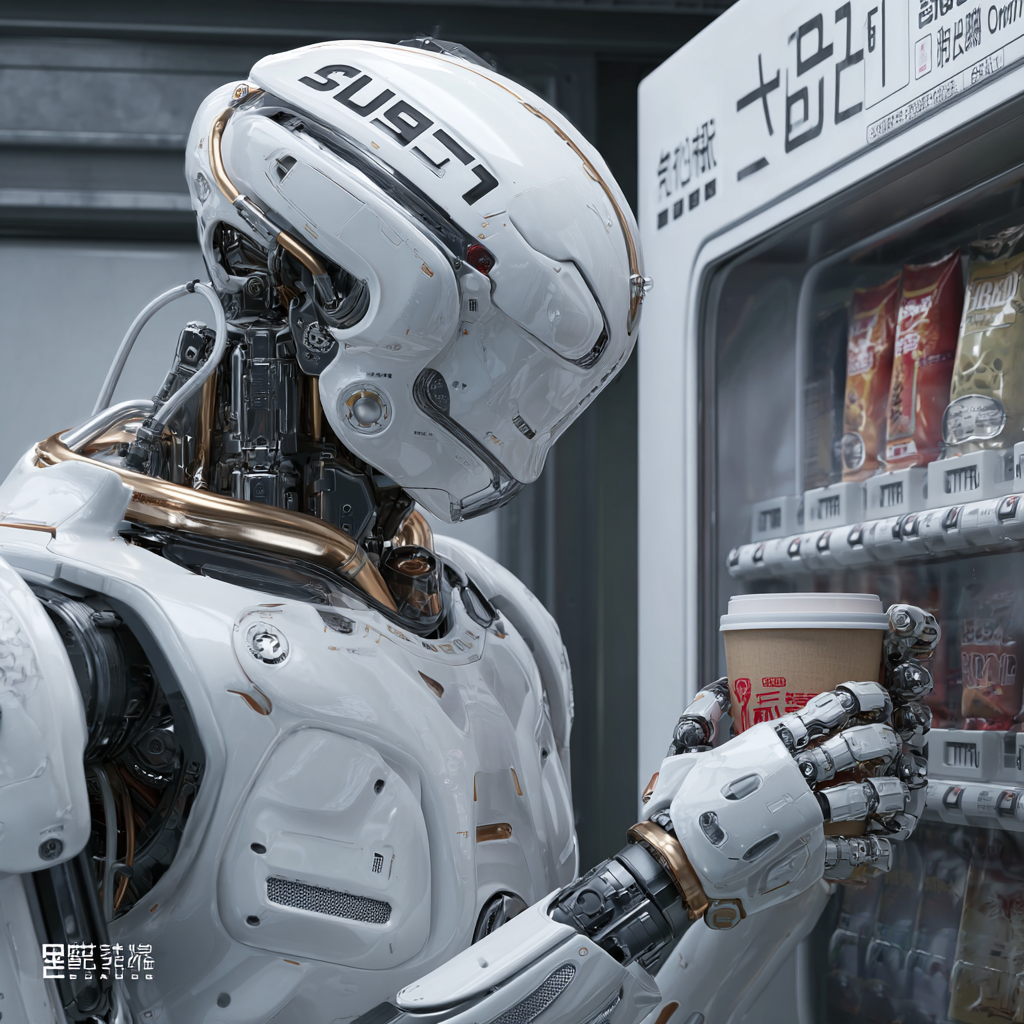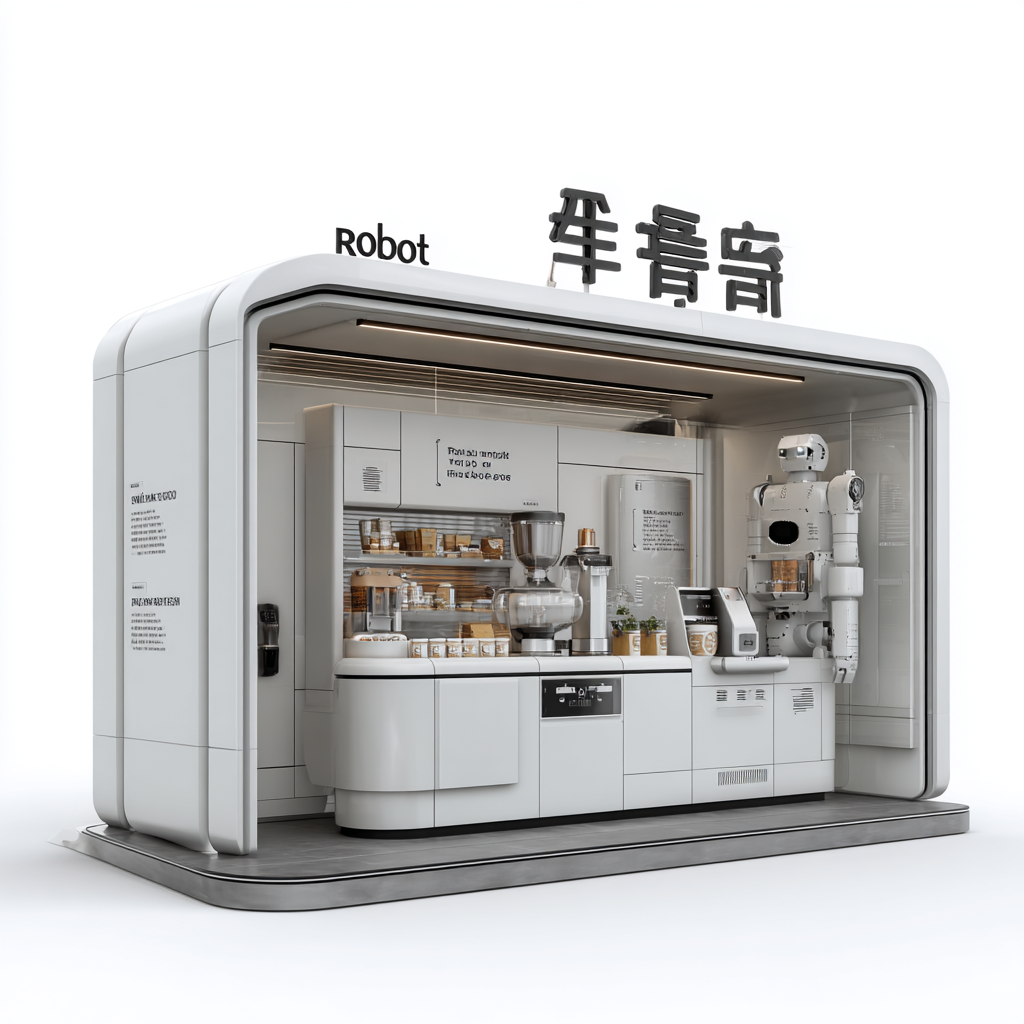Elevating Global Standards: The Rise of China's Best Robot Coffee Kiosk in the International Market
As the world evolves into a more technology-driven landscape, the coffee industry is not left behind, with innovations such as the Robot Coffee Kiosk taking center stage. This blog explores the burgeoning presence of China's leading Robot Coffee Kiosk on the international market and how it is poised to elevate global standards in café service. By 2025, we anticipate substantial transformations in consumer preferences, driven by the desire for convenience and quality. These kiosks not only serve exceptional coffee but also exemplify the fusion of cutting-edge technology with daily life, creating an efficient and engaging experience for customers. As we delve into the industry's dynamics and projected growth, we will uncover the factors contributing to this rise and how China's advancements are setting the benchmark for robotic solutions in the food and beverage sector globally.

The Evolution of Coffee Kiosks: A Market Overview and Key Trends
The coffee kiosk industry has experienced a remarkable transformation in recent years, driven by technological advancements and changing consumer preferences. As urban lifestyles become increasingly fast-paced, coffee kiosks have emerged as a convenient solution for busy individuals seeking quality beverages on the go. This trend has accelerated the evolution of coffee kiosks into sophisticated, automated systems that cater to a growing demand for efficiency and consistency.
Key trends within this market highlight the integration of innovative technologies such as artificial intelligence and robotics. China has taken the lead by developing some of the most advanced robot coffee kiosks, which not only optimize the brewing process but also enhance the customer experience through seamless interactions. As these kiosks gain popularity globally, they set new benchmarks for quality and service, inviting competition and inspiring advancements in other regions. The focus on sustainability and superior quality has driven many brands to rethink their strategies, ensuring they align with consumer values while embracing the future of coffee retail.
Analyzing China's Unique Approach to Robotic Coffee Solutions
China's entry into the robotic coffee kiosk market marks a transformative shift in how consumers experience coffee. Leveraging advancements in artificial intelligence and robotics, Chinese companies have redefined convenience and efficiency. According to a report by ResearchAndMarkets, the global coffee machine market is expected to reach $32 billion by 2025, with a significant portion driven by automated solutions. China, with its rapid urbanization and tech-savvy population, is uniquely positioned to lead this trend.
One popular player in this market is the 24-hour automated coffee kiosk that uses sophisticated algorithms to customize beverages to customer preferences. These kiosks often operate with minimal human oversight, making them a cost-effective solution for businesses. By implementing machine learning, these systems not only enhance operational efficiency but also cater to the growing demand for personalized products. A study from IBISWorld indicates that the coffee shop industry's annual growth rate has averaged over 4% over the past five years, highlighting a robust market ripe for innovation.
Tip: For businesses looking to invest in automation, it's essential to focus on the integration of user-friendly interfaces that offer customization and streamline ordering processes. Understanding consumer preferences through data analytics can significantly enhance product offerings.
Tip: When considering the deployment of robotic kiosks, ensure efficient workforce management to balance automated solutions with human interaction, as this can improve customer satisfaction and retention.
Global Standards in Food Safety and Quality: A Necessity for International Markets
In today's global marketplace, food safety and quality standards are paramount for success, and China’s innovative robot coffee kiosks exemplify this shift. As these robotic operators gain traction internationally, they bring a blend of technology and high-quality standards that are increasingly essential in the food service industry. The strict adherence to global food safety regulations reflects a commitment to providing the best possible experience for consumers, setting a benchmark for others to follow.
When entering international markets, businesses must prioritize compliance with local and international food safety regulations. Here are a couple of essential tips: First, conduct thorough research on the regulations in target markets to ensure your products meet all necessary standards. Second, implement a rigorous quality control process within your operation. This not only enhances consumer trust but also safeguards your brand’s reputation in competitive environments.
Moreover, transparency is crucial. Customers today are more aware of what they consume, making it vital for businesses to clearly communicate their sourcing and preparation methods. By showcasing commitment to food safety and quality, businesses can elevate their standing in the international market, as seen with China’s robot coffee kiosks—where technology and safety standards work hand in hand.
Elevating Global Standards: The Rise of China's Best Robot Coffee Kiosk in the International Market
| Country | Market Reach (%) | Consumer Satisfaction (%) | Food Safety Compliance (%) | Quality Assurance Score |
|---|---|---|---|---|
| USA | 25 | 88 | 93 | 4.5 |
| Canada | 20 | 85 | 91 | 4.3 |
| Germany | 15 | 90 | 95 | 4.6 |
| Japan | 30 | 92 | 98 | 4.8 |
| Australia | 18 | 87 | 94 | 4.4 |
Impact of Consumer Preferences on Robotic Coffee Kiosk Designs and Features
The landscape of coffee consumption is changing rapidly, influenced heavily by shifting consumer preferences. With today’s tech-savvy patrons seeking both convenience and quality, robotic coffee kiosks are becoming increasingly popular. According to a recent report by Research and Markets, the global market for automated coffee kiosks is expected to grow at a compound annual growth rate (CAGR) of 12.5% through 2028. This trend highlights the necessity for kiosk designs to not only streamline operations but also align with customers’ evolving tastes.
Modern consumers prioritize speed and personalization when opting for coffee. Features such as customizable drink options, mobile payment integrations, and real-time ordering have become essential in attracting clientele. A survey by Statista indicates that 55% of coffee drinkers favor self-service options due to their efficiency. To thrive in this competitive arena, designers and manufacturers must closely analyze these preferences and innovate accordingly.
Tip: To keep up with consumer trends, continually gather feedback through social media polls and in-store kiosks to refine your offerings.
Moreover, incorporating sustainable practices can bolster a brand's appeal. A study by Nielsen revealed that 73% of consumers are willing to pay more for sustainable brands. Thus, integrating eco-friendly materials and packaging can not only enhance the kiosk's visual appeal but also resonate with environmentally conscious consumers.
Tip: Consider using biodegradable materials in kiosk designs, which can significantly improve brand perception and attract a broader customer base.

Data-Driven Insights: Performance Metrics of China's Leading Robot Coffee Kiosk
As the coffee industry increasingly embraces automation, China's leading robot coffee kiosk is setting new performance benchmarks on a global scale. Employing data-driven insights, these kiosks have demonstrated impressive metrics that highlight their operational efficiency and customer satisfaction. From sales data to customer feedback, analyzing performance metrics reveals a significant uptick in productivity, with some kiosks achieving a serving capacity of over 300 cups per hour, outpacing traditional coffee shops in speed and accuracy.
Moreover, customer engagement metrics indicate that these robot coffee kiosks not only meet but exceed consumer expectations. With an average customer rating exceeding 4.8 stars, they are optimizing the coffee experience through tailored product recommendations based on purchase history and preferences. Such data-driven strategies not only enhance customer loyalty but also provide valuable insights for further refining product offerings and improving service efficiency. In the competitive landscape of the international market, China's robot coffee kiosks exemplify how leveraging data can elevate standards and drive growth in the industry.

